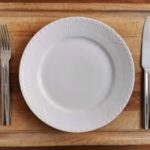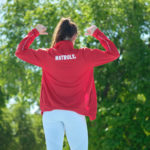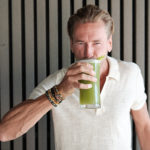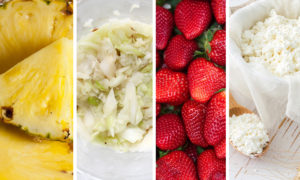Estimated reading time: 2 minute(s)
Intermittent fasting was the most searched term on Google when it came to food trends last year. And I totally get why! 😉 It’s an eye-grabbing concept because it clashes so much with the idea of eating every three hours that we’ve been hearing the last few years.
This system focuses on intaking all of your meals for the day during a certain period of time, leaving a window of 8, 12 or 16 hours of fasting between. For many, this is already a philosophy of life, but there are still aspects surrounding it’s practice which raises doubts. One of them is, “What can I eat while fasting, or is everything forbidden”?
Two key points:
What we intake during the fasting phase:
– Must contain no calories (or very few).
– Should not elevate insulin levels.
– Should not stimulate the secretion of enzymes from the digestive tract.
One peculiarity is that drinks are allowed during the fasting phase, in fact, they are very important, since dehydration is something that must be avoided, and not just during periods without solid food. Drinking can serve to keep hunger at bay, but be careful, because not all beverages are the same. So, let’s take a look!

Permitted Drinks While Fasting
Water
The most recommendable drink there is! We should always prioritize drinking some water. Drink water whenever you feel like it! Sparkling water is perfect because it also helps to replenish those minerals that are lost during fasting. You can also drink flavored water. Try some with a dash of lemon, mint or ginger.
Like with everything, there are many theories on what drinks are allowed; and although the best thing is to stick to water, there are experts who have also given the green light to others like:
Coffee
Coffee lovers you’re in luck, because many studies have shown that this food is highly recommended when fasting because it activates the autophagy process. Of course, you should drink decaf (so as not to activate your nervous system), and without sugar, sweeteners or milk.
Bone Broth
It fights both hunger and dehydration by releasing minerals into the body. Here is my recipe…
Herbal Teas
These are allowed because they are basically water with herbs, spices or seeds. As with coffee though, you should drink them without sugar, sweeteners or milk.
Drinks To Avoid While Intermittent Fasting
During fasting periods we should avoid fruit or vegetable juices and smoothies, as well as carbonated soft drinks (including those advertised as sugar-free) and alcohol.
Also, watch out for supplements: there are some that contain small amounts of sugar, proteins and sometimes fats, which could break your fast. For example, protein powders, some gummy multivitamin supplements or branched-chain amino acids (BCAAs) break fasts. Read the package inserts carefully.
What Can Happen While Intermittent Fasting?
“When I fast I am more irritable, I get headaches, I don’t sleep well, I am hungry all the time…” These are some of the things we sometimes hear from people who practice fasting. Although each person is different, it is important to know that fasting, like all eating techniques, requires an adjustment period.
When we begin fasting we can experience:
– Tiredness, fatigue: this may be due to a loss of minerals. Stay well hydrated.
– Headache: it is a symptom from the body being cleansed of impurities.
– Insomnia, irritability: during fasting the nervous system is overstimulated and until we get used to it, we may experience these sensations.
With time, you will see how little by little, these symptoms disappear. And, fasting becomes more bearable.
Do you want some advice? Keep busy, go for a walk, play sports, read, meditate…













